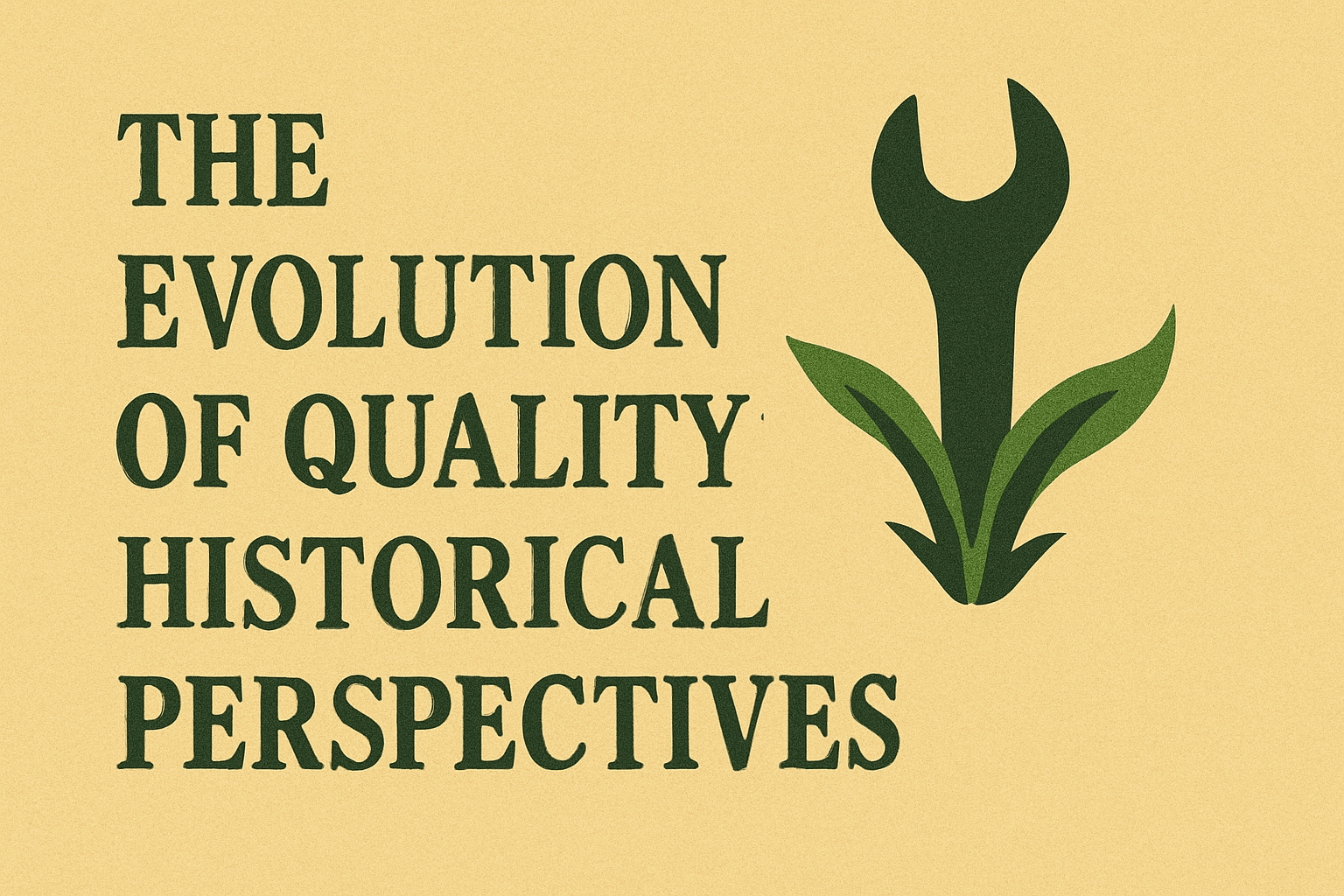Tracing the historical development of the concept of quality in philosophy, from ancient Greek philosophy to Pirsig’s modern reinterpretation.
The concept of quality has evolved significantly throughout the history of philosophy, from its early mentions in ancient Greek thought to Robert M. Pirsig’s modern reinterpretation in his Metaphysics of Quality (MOQ). This article traces the historical development of quality, examining how various philosophers have understood and articulated this elusive yet fundamental concept.
Ancient Greek Philosophy
The origins of the concept of quality can be traced back to ancient Greek philosophy, where early thinkers laid the groundwork for its understanding.
- Plato: In Plato’s dialogues, the concept of quality is intertwined with the idea of forms or ideals. Plato posited that every tangible object has a corresponding ideal form, a perfect version that exists in the realm of ideas. Quality, in this sense, is an intrinsic property of these forms, representing the perfection that material objects can only approximate.
- Aristotle: Aristotle provided a more systematic treatment of quality in his works, particularly in the Categories and the Metaphysics. He categorized quality as one of the ten categories of being, defining it as a characteristic that can be attributed to substances. For Aristotle, qualities are properties that determine the nature of a substance, such as color, texture, and shape.
Medieval Philosophy
During the medieval period, philosophers built upon Greek ideas, integrating them with theological concepts.
- Aquinas: Thomas Aquinas, influenced by Aristotle, further developed the notion of quality within a theological framework. Aquinas distinguished between essential and accidental qualities, with essential qualities being those that define the essence of a being, while accidental qualities are those that can change without altering the essence.
- Scholasticism: Scholastic philosophers engaged in detailed analyses of quality, often linking it to the nature of God and creation. They explored the implications of quality in metaphysical and moral contexts, emphasizing the perfection of divine qualities.
Early Modern Philosophy
The early modern period saw a shift towards empirical and scientific approaches, which influenced the understanding of quality.
- Descartes: René Descartes introduced a dualistic framework, separating the mind and body. In this context, quality became associated with the properties of physical objects that can be measured and quantified, such as size, shape, and motion. Descartes’ approach laid the groundwork for the scientific method, emphasizing objective measurement.
- Locke: John Locke distinguished between primary and secondary qualities in his Essay Concerning Human Understanding. Primary qualities, such as solidity and extension, are inherent in objects, while secondary qualities, such as color and taste, are the result of sensory perception. Locke’s distinction underscored the subjective nature of sensory experiences.
19th and 20th Century Philosophy
The 19th and 20th centuries witnessed further diversification in the understanding of quality, influenced by developments in science, psychology, and existentialism.
- Kant: Immanuel Kant’s Critique of Pure Reason revolutionized the concept of quality by arguing that our understanding of qualities is shaped by the mind’s inherent structures. According to Kant, qualities are not intrinsic to objects but are the result of how we perceive and organize sensory information.
- Heidegger: Martin Heidegger, in his existential and phenomenological explorations, emphasized the lived experience of quality. For Heidegger, qualities are not just properties of objects but are deeply connected to our being-in-the-world. He argued that our engagement with the world is fundamentally qualitative, shaped by our existential conditions.
Robert M. Pirsig’s Metaphysics of Quality
In the late 20th century, Robert M. Pirsig introduced a groundbreaking reinterpretation of quality in his Metaphysics of Quality, presented in his books Zen and the Art of Motorcycle Maintenance and Lila: An Inquiry into Morals.
- Quality as the Primary Reality: Pirsig proposed that quality is the foundation of reality, preceding and transcending the traditional subject-object dichotomy. According to Pirsig, quality is not merely a property of objects or a subjective experience but is the primary reality from which both subjects and objects emerge.
- Static and Dynamic Quality: Pirsig distinguished between static quality, which encompasses the stable, structured aspects of reality, and dynamic quality, which represents the spontaneous, creative forces of change. This dual framework provides a comprehensive understanding of how stability and innovation interact to shape our experiences and the world.
- Integration of Eastern and Western Thought: Pirsig’s MOQ integrates concepts from Eastern philosophies, particularly Zen Buddhism, with Western analytical traditions. This synthesis offers a holistic approach to understanding quality, emphasizing both the immediate, lived experience and the underlying structures of reality.
- Practical Implications: Pirsig’s philosophy extends beyond theoretical discourse, offering practical guidance for living a quality-centered life. By focusing on quality in everyday activities, from motorcycle maintenance to personal relationships, individuals can achieve greater fulfillment and harmony.
Conclusion
The concept of quality has undergone significant evolution throughout the history of philosophy, reflecting changes in metaphysical, epistemological, and practical perspectives. From the ideal forms of Plato to Pirsig’s Metaphysics of Quality, philosophers have continually explored and redefined what it means to experience and appreciate quality. Pirsig’s modern reinterpretation, with its emphasis on both static and dynamic quality, offers a compelling framework that bridges traditional dichotomies and provides practical insights for enhancing our engagement with the world. As the concept of quality continues to evolve, it remains a central, unifying theme in our quest to understand and improve the human experience.
